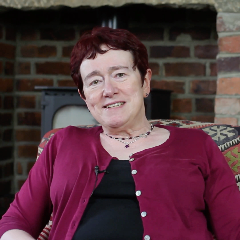You are not currently logged in. Please create an account or log in to view the full course.
Symptoms and Diagnosis
- About
- Transcript
- Cite
Psychopathology – Depression
In this course, Professor Linda Gask (University of Manchester) explores the topic of depression. In the first lecture, we think about what depression is and how it can be diagnosed. In the second lecture, we think about different biological explanations for depression and consider available drug treatments. In the third lecture, we think about Freud’s psychodynamic model of depression. Next, we think about two cognitive models and their corresponding treatments: Ellis’s ABC Model and Rational Emotive Therapy and Beck’s Cognitive Triad and Cognitive Behavioural Therapy. In the fifth lecture, we introduce Seligman’s Learned Helplessness theory as a further psychological explanation for depression. In the sixth and final lecture, we conclude the course with a discussion of the social factors that may play a role in depression and underlines the importance of considering biological, psychological and social factors in conjunction.
Symptoms and Diagnosis
In this lecture, we think about what depression is and how it can be diagnosed, focusing in particular on: (i) the symptoms of depression which can be grouped into the four categories of emotional, cognitive, physical and behavioural; (ii) the specific constellation of symptoms required for a diagnosis of depression; (iii) its prevalence among the general population.
Cite this Lecture
APA style
Gask, L. (2019, September 30). Psychopathology – Depression - Symptoms and Diagnosis [Video]. MASSOLIT. https://massolit.io/courses/depression/the-psychodynamic-model
MLA style
Gask, L. "Psychopathology – Depression – Symptoms and Diagnosis." MASSOLIT, uploaded by MASSOLIT, 30 Sep 2019, https://massolit.io/courses/depression/the-psychodynamic-model

